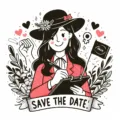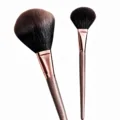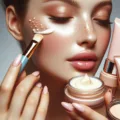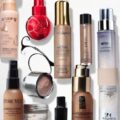In a world where the definition of beauty continuously evolves, many women still grapple with the pressure to meet certain aesthetic standards. One of the most pervasive beliefs is that makeup is essential to looking beautiful, leading many to feel inadequate without it. This article delves into the reasons behind this phenomenon and explores how society and individuals can foster a more inclusive perception of beauty.
The Influence of Media on Beauty Perceptions
The media plays a significant role in shaping what society considers beautiful. From magazine covers to social media influencers, the pervasive images of women with flawless makeup can create an unrealistic standard for everyday appearance. This constant exposure can lead to a belief that a ‘made-up’ face is the only acceptable way to present oneself to the world.
The Psychological Impact of Makeup on Self-Esteem
Makeup can be empowering for many, serving as a tool for self-expression and confidence. However, reliance on cosmetics can also impact self-esteem, with some women feeling ‘naked’ or ‘incomplete’ without their makeup. This dependency reflects deeper issues of self-acceptance and the internalization of societal beauty norms.
Breaking Free from the Makeup Mandate
Challenging the status quo begins with embracing diversity in beauty. Campaigns and movements that celebrate natural looks and individual uniqueness can help shift the narrative. Encouraging open discussions about the pressures of beauty standards can also empower women to make choices about makeup based on personal preference rather than compulsion.
The Role of the Beauty Industry in Perpetuating Stereotypes
The beauty industry often reinforces the idea that makeup is necessary for women to look their best. By promoting products as solutions to ‘imperfections,’ there is an implication that natural faces are flawed. The industry has a responsibility to promote a more balanced view of makeup as an optional accessory rather than a requirement for beauty.
Steps Towards a More Inclusive Beauty Culture
To create a culture where makeup is a choice and not a mandate, it’s essential to support brands and initiatives that prioritize inclusivity. Highlighting stories of individuals who defy traditional beauty standards can inspire others. Furthermore, educating young girls about self-worth beyond appearance will lay the foundation for a more confident generation.
FAQ: Understanding the Makeup and Beauty Dilemma
- Why do some women feel the need to wear makeup every day?
Many women feel societal pressure to maintain a certain level of appearance, which often includes wearing makeup. It’s also a personal choice for self-expression and confidence enhancement. - How can we promote a more natural look in society?
We can promote a more natural look by supporting brands and campaigns that celebrate natural beauty, and by sharing and normalizing makeup-free images in media and personal networks. - What role does the beauty industry play in women’s self-image?
The beauty industry plays a significant role by often marketing products that suggest women need to ‘fix’ their natural appearance. Changing this narrative to one that emphasizes choice and self-love is crucial. - Is it possible to feel beautiful without makeup?
Absolutely. Beauty is subjective and personal. Feeling beautiful without makeup is about self-acceptance and recognizing one’s worth beyond physical appearance. - What can be done to help young girls develop a healthy relationship with makeup?
Educating young girls about self-worth, providing positive role models, and encouraging discussions about beauty standards can help them develop a healthy relationship with makeup and their self-image.









